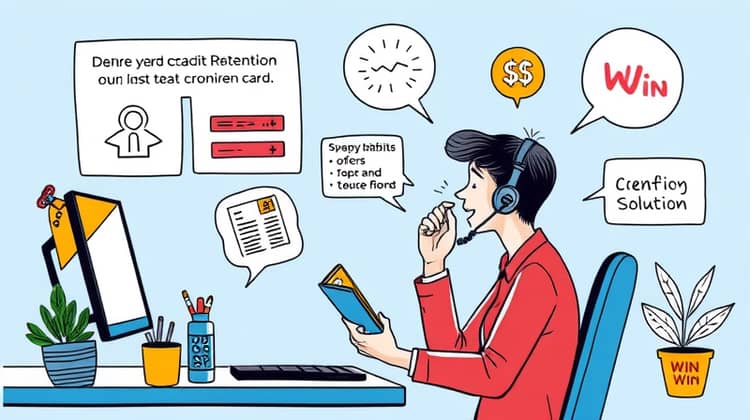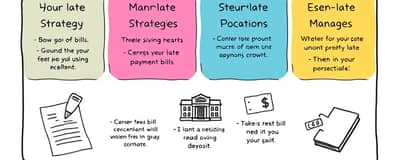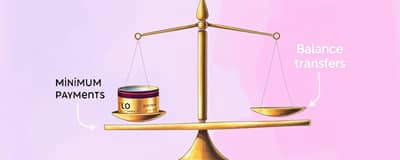Credit cards offer a variety of benefits and rewards that can be immensely valuable. However, as time goes on, you may find yourself questioning the costs associated with them, especially if you're paying high annual fees or encountering interest rates that are harder to manage. This is where credit card retention offers come into play, providing you with an opportunity to negotiate and keep your card under more favorable terms.
Understanding how to negotiate these retention offers can have a significant impact on your financial well-being. It allows you to keep the benefits of your credit card while reducing costs that may be holding you back, such as high fees or unfavorable interest rates. In this guide, we'll delve into the nuances of negotiating credit card retention offers so you can approach the conversation with confidence and knowledge.
By following the steps outlined, including timing your call, preparing negotiation strategies, and knowing the right questions to ask, you'll improve your chances of achieving a better deal. Whether you aim for a lower interest rate or enhanced rewards, applying these tactics can lead to more favorable credit card terms.
Understanding Credit Card Retention Offers

Credit card retention offers are incentives that credit card issuers provide to keep customers from canceling their accounts. When a cardholder threatens to close their account, the issuer may present a retention offer to persuade them to stay. These offers can vary greatly from discounts on annual fees to bonus rewards or lower interest rates.
It's important to recognize that these offers are not guaranteed. Credit card companies want to retain customers but also have specific criteria they consider when determining whether or not to provide a retention offer. Generally, they'll consider the cardholder's payment history, the length of time they have been a customer, and how frequently they've used the card.
Knowing what types of offers are typically extended can help you gauge the likelihood of success when negotiating. As many issuers want to avoid losing valuable customers, having reasonable expectations and a good understanding of potential offers will serve you well.
Timing Your Call

The timing of your call to negotiate a retention offer can significantly impact the outcome. It's advisable to reach out to your credit card issuer before your annual fee is charged, or when you suspect that you may not be making use of your account's benefits as you once did.
- Call during business hours when representatives are more likely to have the authority to make decisions.
- Avoid calling immediately after receiving a bill or during holidays, as these times can lead to longer wait times and rushed conversations.
- Be prepared to hold and speak calmly; patience and politeness can make a difference in negotiations.
Having an appropriate timing strategy can set the stage for a more fruitful negotiation, increasing your chances of receiving a desirable offer.
Strategies for Negotiating Retention Offers

When negotiating retention offers, it's crucial to come prepared with knowledge and a clear sense of what you want to achieve. Before making the call, familiarize yourself with your spending habits on the card, current offers by competitors, and your own unique financial situation.
A strong negotiation strategy encompasses knowing how to leverage your loyalty as a customer. If you've been a long-time cardholder with a solid payment history, use that as a bargaining chip. Remember, the goal is to find a win-win solution that works for both you and the credit card issuer.
- Start by expressing your appreciation for the card and its benefits, then mention your concerns, such as high fees or lack of use.
- Clearly state what you are looking for – whether it's a reduced fee, bonus rewards, or lower interest rates. Be specific when articulating your needs.
- Be prepared to walk away if your concerns are not met, as this can prompt the representative to offer better terms to keep your business.
Using these strategies while maintaining a respectful and friendly tone can facilitate a smoother negotiation process and increase the likelihood of a favorable outcome.
Questions to Ask

Asking the right questions can help you steer the conversation and gain valuable insights regarding retention offers. It's key to approach this negotiation with an inquisitive mindset, focusing on gaining information that will benefit you.
Instead of demanding offers, articulate your position and seek clarification about what might be available to you based on your loyalty and needs.
- What retention offers do you currently have available for long-term customers?
- Are there any opportunities to waive the annual fee if I continue to use my account?
- Can you clarify how my payment history affects my eligibility for retention offers?
These questions not only show that you are serious about retaining your account but also encourage the representative to provide tailored offers based on your situation.
Additional Tips for Negotiating Retention Offers

In addition to the strategies listed above, apply some extra tips to elevate your negotiation skills. Presenting yourself as a valued customer increases your odds of attractive offers and terms.
Maintaining a calm demeanor and remaining polite throughout the negotiation process can leave a positive impression on the representative.
- Practice active listening to understand the representative's responses better and engage in a meaningful dialogue.
- Keep track of your conversation and any offers made, as this will help you compare and hold the issuer accountable if you decide to revisit discussions later.
Integrating these tips can further enhance your effectiveness while negotiating retention offers, making you more likely to achieve the results you desire.
What to Do If You Don’t Receive a Retention Offer

If you find yourself in a situation where the issuer does not present a retention offer, it doesn't mean the end of your options. Firstly, consider your alternatives before making a decision to close your account. Explore other cards that might provide better benefits or lower fees that suit your needs better.
One potential course of action is to calmly request to speak to a supervisor. If the initial representative cannot accommodate your request, escalating your issue may yield different results as higher-level representatives typically have more authority to negotiate offers.
Lastly, prepare to evaluate your own credit card usage. If the current card no longer serves your financial goals, it might be an opportunity to consolidate your finances with a more favorable card option.
Being prepared with alternatives and showing that you have done your research can leave a positive impression, even in the absence of an offer.
Conclusion

Negotiating credit card retention offers may seem daunting, but with the right approach and knowledge, you can successfully advocate for better terms and rewards that suit your financial needs. Remember, being a long-term customer holds weight in these negotiations, so leverage your loyalty effectively.
By choosing the right time to call, preparing thoughtful questions, and employing effective strategies, you can improve your chances of walking away with a satisfactory outcome from your negotiation. Remember to remain patient and polite during the process to foster a constructive dialogue that is beneficial for both parties.














